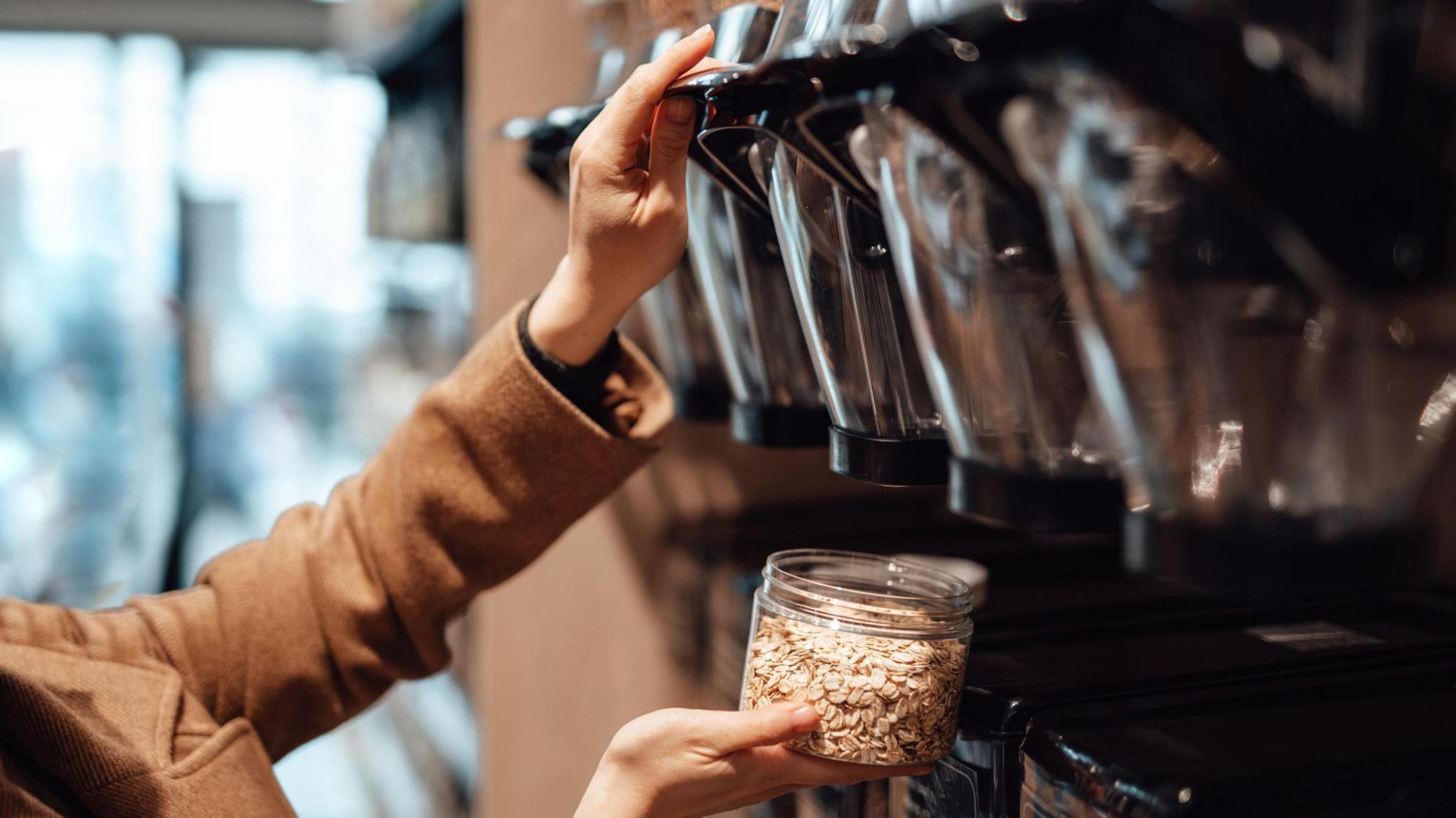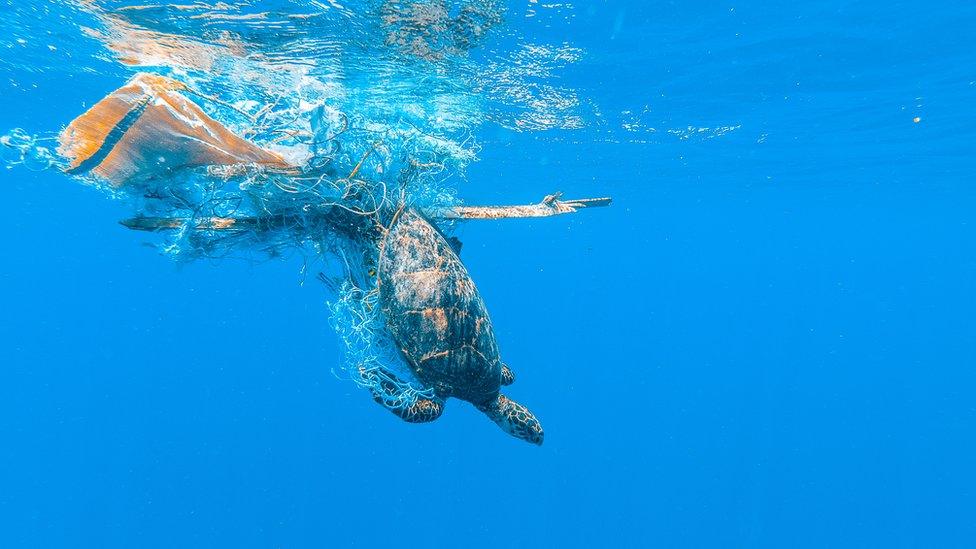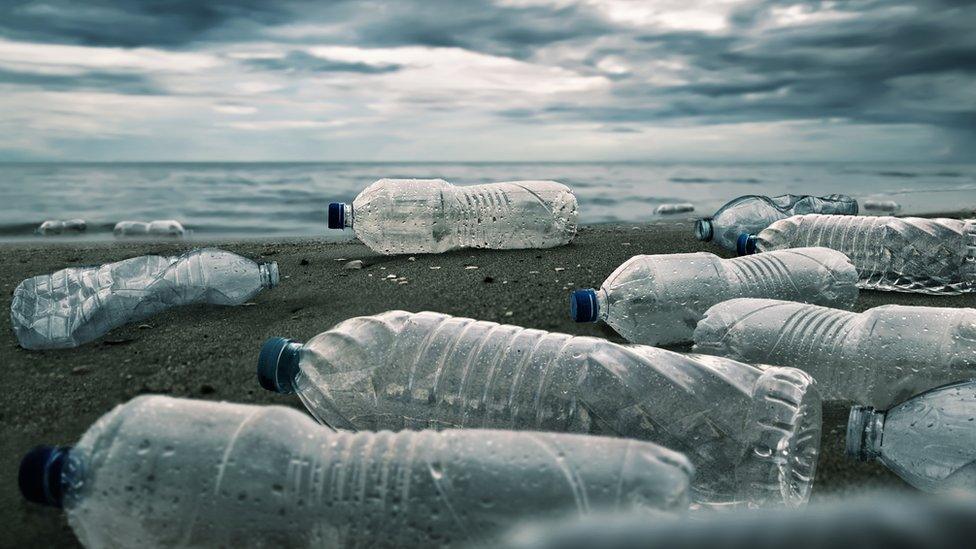World leaders urged to prioritise 'reuse' by experts

The University has described it as prioritising the reuse of products and packaging over recycling
- Published
Experts have told governments across the globe to prioritise reuse systems in order to bring an end to plastic pollution.
Researchers from the University of Portsmouth's Revolution Plastics Institute (RPI) spoke at the fourth round of Global Plastics Treaty talks in Canada.
The treaty, announced in 2022, aims to end plastic pollution and is set to come into force at the end of the year.
The university team co-hosted the event on Sunday with the UK and Chilean Governments, and the Isle of Wight's Ellen MacArthur Foundation.
At the event researchers attempted to better explain what reuse is and how important it is for tackling plastic pollution.
The university has described it as prioritising the reuse of products and packaging over recycling, external.
It said: "We define a ‘reuse system’ as a comprehensive system designed for multiple circulations of reusable products and packaging which remain in the ownership of the reuse system and are loaned to the consumer.
"The system accounts for the recovery of the reusable item, reverse logistics, cleaning, replenishing and redistribution."
Antaya March, research lead of the Global Plastics Policy Centre at the University of Portsmouth, said: “Despite increasing support for reuse in the Global Plastics Treaty, there is still much confusion around what it actually is, and what it should look like."
'An easy lift'
Professor Steve Fletcher, Director of the RPI, feels reuse is less divisive than measures like caps on production or outright bans on materials.
He said: "Agreeing to implement reuse systems in settings that already have the infrastructure for it - such as restaurants, cafes, schools, public buildings, and event venues - is an easy lift in the context of very complicated political negotiations.”
Follow BBC South on Facebook, external, X (Twitter), external, or Instagram, external. Send your story ideas to south.newsonline@bbc.co.uk, external or via WhatsApp on 0808 100 2240, external.
More on plastic pollution
- Published2 March 2022

- Published18 January 2022
